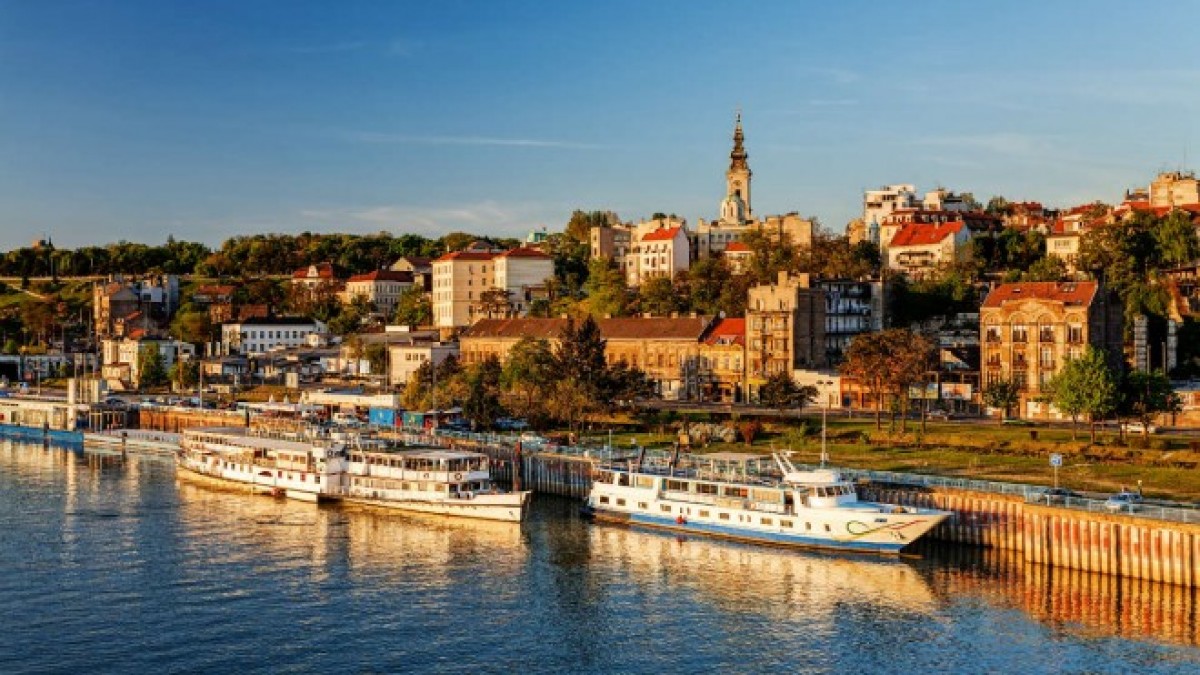Famous Serbian hospitality, cordiality and good mood, especially when it comes to hosting guests from abroad, has been known since ancient times, and now it is also widely recognized. The tradition and customs indicate that each Serbian should be a good host and each guest should leave the country with high satisfaction and with many positive impressions. High majority of tourists who visit Serbia are always happy to return, and some even decide to move here for a longer period.

When a foreigner decides to move here, Serbian people tend to always ask themselves - what are this foreigner's motives and what inspired him/her to leave his/her homeland and move to Serbia? These questions specially arise, when having in mind that many Serbians think that in other countries people generally live better ... However, foreigners who decide to move here - apart from our hospitable mentality, closeness and readiness to socialize, mostly manage to have good time, have a lot of fun and enjoy life. In addition, most of them point out that living costs in Serbia are significantly lower compared to Western European countries, as well as compared to many other countries in the world. Most of the time, foreigners who come to Serbia decide to live in Belgrade, but there are also those who choose, for various reasons, to live in other Serbian cities.
One of the recently more frequent and quite interesting reasons for moving to Serbia is actually - search for love. Let's not ignore the fact that Serbian women and men are broadly recognized as being particularly handsome. Thus, maybe, we should not be surprised if foreigners during their tourist or business visits suddenly and ultimately decide to stay in Serbia for the reasons of finding love and trying their luck here! Also, one of the biggest advantages for those who choose to live in the Serbian capital city is that it is widely known as the city that “lives 24 hours”. By that, we do not only mean twenty-four hours of entertainment at numerous taverns and clubs, but also that many other service activities, such as for example retail shops and groceries actually work non-stop. Whatever you need, at whatever time of the day or night - it's possible to find and get in Belgrade, Serbia!
How is it in reality to live in Belgrade, Serbia?
If you ask someone who comes to Belgrade from other, smaller town in Serbia, he/she will tell you that living in Belgrade is pretty fast and sometimes difficult, and that the biggest problem is the public transportation and finding parking, in case you own a car. For others, the costs of living in the Belgrade are high, as they are certainly used to lower prices in their hometowns! Living in Belgrade is more expensive compared to the cost of living in other Serbian cities, but living in Belgrade certainly could offer far better opportunities for more interesting and contented life and a variety of fun, cultural or sport events, better education, and of course - more opportunities for employment.
What do foreigners who decide to move to Serbia say about the cost of living?
For foreign citizens who decide to move to Serbia from major European cities, the cost of living in Serbia is relatively small, given that living standard in Western European countries is higher than here. There is an advantage certainly for those who are not renting apartments or do not have big loans in banks or other debts, since that renting costs are in fact the biggest among the living expenses in Belgrade Serbia.
In reality, if you manage to find a well-paid job and do not spend too much money on unnecessary things, the cost of living in Belgrade is actually quite acceptable. Also, if we are consider only the level of prices, without taking into account many different benefits that living in Belgrade can offer, it is quite easy to conclude that the costs of living in Belgrade are higher than living cost in other Serbian cities. However, comparing to many European major cities, living costs are similar or even lower ... Serbian people say "Everything has its advantages and disadvantages!", so whatever anyone prefers!
Is Serbia a good place to live?
According to the list compiled by the world-renowned journal “Economist”, which considers comparison of over 400 prices of 160 different services and products, including: transportation, rent, recreational sports, personal hygiene, home supplies, drinks, clothing, food, private education and other services, Singapore for five consecutive years is the most expensive city in the world. Belgrade on the other hand, is among the cities that have moved most places to the top of this list since the last year. Among the ten most expensive cities are Paris, Zurich, Geneva, Oslo, Hong Kong, Copenhagen, Seoul, Sydney and Tel Aviv. The smallest living costs are in Damascus, Almaty, Caracas, Algeria, Bucharest, Bangalore, Lagos, Chennai, Karachi and New Delhi. Thus, the costs of living in Belgrade, and Serbia in general, are more individual feeling and are based on personal experience that depends on many factors, and in reality, they are neither the largest nor the smallest in comparison with other world or European cities!
The answer to the question if Serbia is a good place to live is not affected only by the level of living expenses, but also by unmaterial things, such as personal fealing about what makes someone happy and fills-out his/her soul! If you are asking yourself if Serbia is a good place to live, we would tell you that everything depends on your expectations, needs, wishes, plans and abilities! For quite long, there have been many movements of people in both directions, from Serbia and to Serbia. Some people found their happiness in Serbia, while others found somewhere else. However, one thing is certain - if you are looking for a country and people that would quickly accept you and welcome you whoever you are and wherever you are coming from, then it is definately Serbia! Welcome and cheers!
